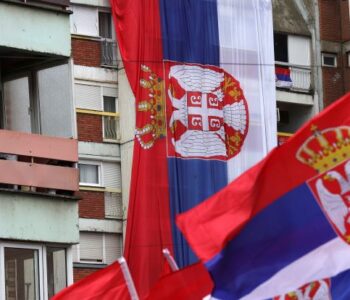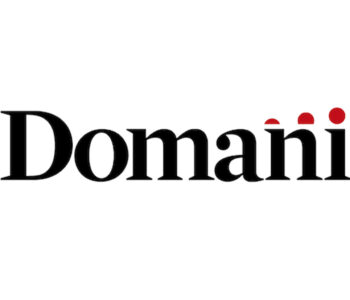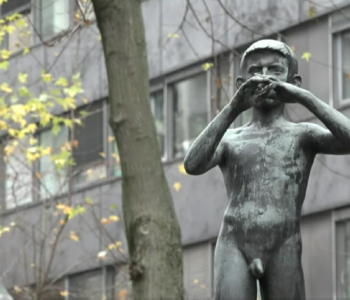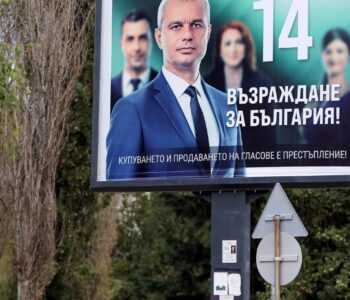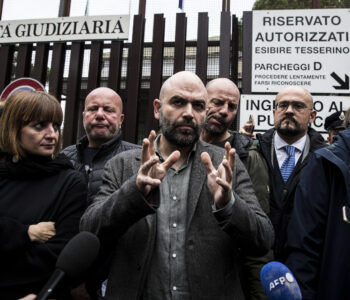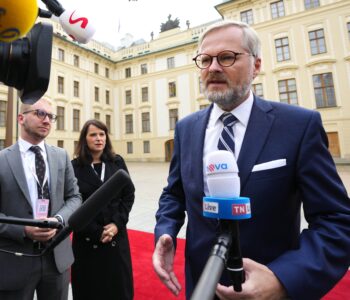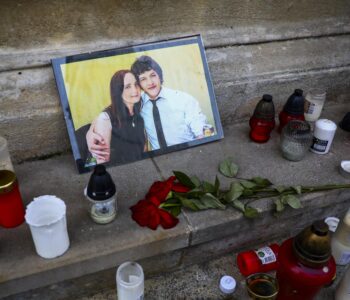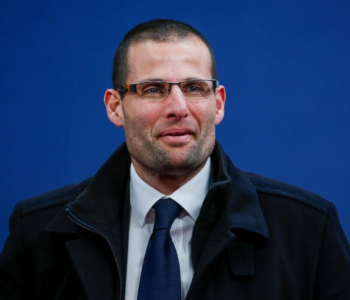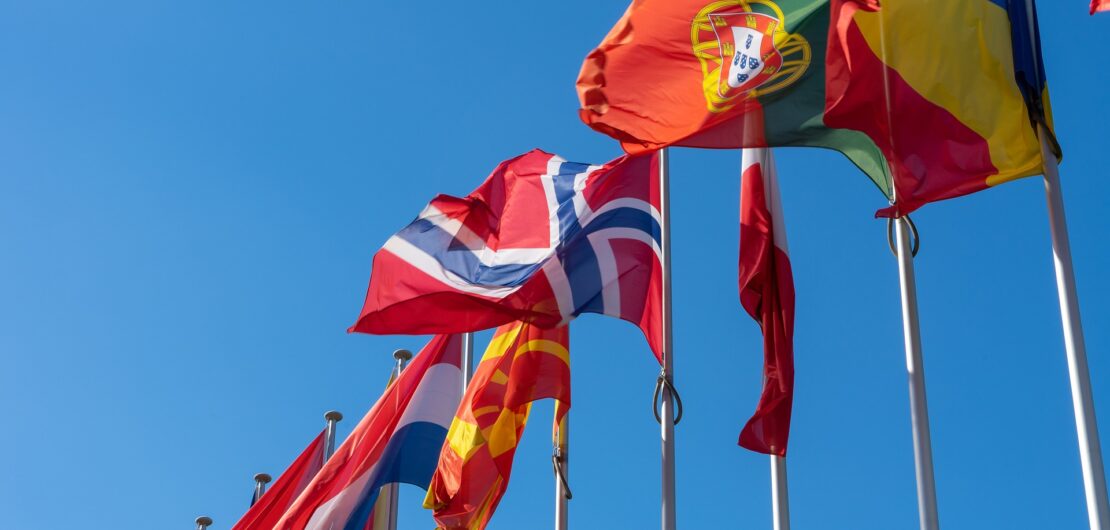
Portugal: Press freedom remains robust even as media face…
Portugal: Press freedom remains robust even as media face resource strains
Strong legal framework and lack of political interference in media create open climate for independent journalism
By IPI contributor Cláudia Marques Santos
Press freedom remains strong in Portugal. The country is democratically stable and the risks of government interference in the media are low. Both the constitution and the national Press Law safeguard journalists in their daily reporting.
But there are some areas of concern: journalists’ deteriorating work conditions and precarity, as well as significant concentration of media groups. The number of cases from Portugal that end up in the European Court of Human Rights (ECtHR) regarding press freedom violations is also high. The ECtHR has convicted Portugal in three major cases this year alone.
Portugal consistently ranks well in international press freedom rankings. In addition, according to the 2022 Digital News Report, 61 percent of Portuguese people have trust in news overall as well as in news they read or listen to. The European University Institute’s 2022 Media Pluralism Monitor (MPM) finds that Portugal presents a stable situation.
“Portugal is not a problematic country”, says Carla Baptista, academic and one of the authors of the 2022 MPM entry on Portugal. “In the case of political independence, the question is whether there are media outlets that are directly controlled by political forces, by parties or others. [In Portugal] Political parties cannot own television or radio stations, they can only own newspapers. There is no direct use of the media [by political parties] as there is in many European countries.”
Besides this low risk concerning political independence, the country has a strong legal framework regarding the practice of journalism and the right to inform, as well as guaranteeing the fundamental right not to reveal sources.
Plus, according to the Media for Democracy Monitor, Portugal scores maximum points concerning pluralism in newsrooms’ rules and practices. “There’s no tradition for news media to endorse publicly a political party or a presidential candidate”, it said in its 2022 report. “All of the main media insist on independence as their supreme value, promising to offer their audience all the relevant perspectives on any issue under debate.”
Some challenges remain, however. In early 2021, controversy erupted when it became known that two Portuguese journalists were subject to a two-month long police surveillance operation, in 2018 April and May, ordered by the Public Prosecutor’s Office, with the purpose of revealing their confidential sources, because of investigations they were doing about corruption and a major football club.
As a result, the European Commission severely criticized Portugal, considering it “unacceptable” that, in a state governed by the rule of law, journalists are subject to police surveillance and harassment when it comes to accessing sources. Just last April, the Lisbon Court of Appeal reverted the investigating judge’s decision not to order a trial of the two journalists for crimes of breach of secrecy of justice.
Legal landscape for press freedom
Though the rights of Portuguese journalists are secured by the Press Law (nr. 2/99, whose Article 1 says “freedom of the press includes the right to inform, to be informed and to be informed without hindrance or discrimination”), the practice of Portuguese courts explains why many cases end up in ECtHR.
Since 2005, the European Court of Human Rights (EctHR) has ruled in more than 20 cases that Portugal violated Article 10 of the European Convention on Human Rights regarding freedom of expression. These have included cases involving the television broadcaster SIC, daily newspaper Público and newsmagazine Visão.
In December 2003 SIC reported that the then Azores’ secretary of Agriculture and Fisheries was implicated in a pedophile case in the islands, which was being investigated. Last year the ECtHR found in favour of SIC.
In 2017 the ECtHR found in favour of José Manuel Fernandes, Público’s former director, who had been convicted in court over a 2006 editorial article he wrote about the then newly elected president of the Supreme Court, criticizing his inauguration speech.
In 2016 the ECtHR also found in favour of Visão. Six years earlier, the news magazine had been convicted over an opinion article saying that the then prime minister would have to be on drugs to start a war with a political commentator (who is today the president of Portugal).
And only this year the ECtHR found against Portugal in the case of a satirical newspaper based in Madeira. In 2007, this newspaper had written that “unloading a ship at Caniças is the same thing as unloading a pallet of money at the orange foundation”, referring to the orange-coloured PSD party that ruled the island for decades.
“It’s cultural”, says Ricardo Correia Afonso, a Portuguese lawyer whose career has been built on defending journalists in court. “Until very recently, Portugal was a country where you’d put freedom of expression and the right to inform on one side and the right to honour and good name on the other.” Afonso said that, traditionally, the latter principle prevailed.
Another concern is the horizontal concentration of media companies, with several big media groups controlling the market, as noted in the 2022 Media Pluralism Monitor. In 2015, a new Transparency Law obliged media companies to report every year their financial outcomes and ownership details to Portugal’s media regulator, Entidade Reguladora para a Comunicação Social (ERC). While this has increased transparency in media ownership, concerns remain about some large media companies not sending all the required data. Another concern this study points out is the lack of funding of this institution, which has an ex-judge as president.
Working conditions
Job security is another major concern in Portuguese journalism. According to the Media for Democracy Monitor, Portugal scores poorly on this metric. “In the last 10 years, all of the most important Portuguese news media downsized their newsrooms, dismissing dozens of journalists”. Between 2009 and 2020 the number of professional journalists decreased 23 percent, from 6,673 to 5,124.
Resources for Investigative journalism have also dropped, which isn’t a good indicator for democracy. News media are clearly underfunded. Most journalists in newsrooms aren’t given time to investigate- Freelancers cannot afford going to court if someone presses charges against them. All of this raises the risk that important stories may not come to light.
Another matter in discussion in Portugal is the fact that the Press Law, which dates from 1999, hasn’t been updated since. Digital media, for instance, remain unregulated. In Portugal, media matters are under the umbrella of the Ministry of Culture. The last government had a secretary of state for cinema, television and media affairs. This specific position no longer exists, although media still remain under the culture ministry.
Disinformation also stands out as a great risk for democracy and news reporting in Portugal. In May 2021 a law (no. 27/2021) was published approving the Portuguese Charter on Human Rights in the Digital Era. “Alongside ensuring basic rights, freedoms, and guarantees for citizens in the online environment, the legislation establishes that the state must protect citizens from people who produce, reproduce, and disseminate misinformation, in line with the European Action Plan against Disinformation”, writes the Digital News Report. On the other hand, according to Media Democracy Monitor, there’s no significant online harassment of Portuguese journalists. There are exceptions, however.
In December 2020 and January 2021, journalists who made an investigation on the broadcaster SIC about the far-right populist party Chega were subjected to a torrent of insults, harassment, and threats online. The same happened earlier this month, with the release in several media of an investigation made by a new consortium of Portuguese investigative journalists about online hate speech made by police forces in private social media groups, powered by movements linked to Chega.
Another concerning phenomenon is the increasing bias displayed in online news platforms. “There is a proliferation of digital news media that are a one person company”, says Carla Baptista. “The law only demands an editorial project and a director which means ERC approves news media almost automatically.” Fake news is a big problem, and Portugal is no exception.
This article is part of IPI’s series “Media freedom in Europe in shadow of Covid”, which comprises news and analysis from IPI’s network of correspondets throughout the EU. Articles do not necessarily reflect the views of IPI. The reporting series is supported by funding from the Friedrich Naumann Foundation for FReedom and by the European Commission (DG Connect) as part of the Media Freedom Rapid Response coalition.

